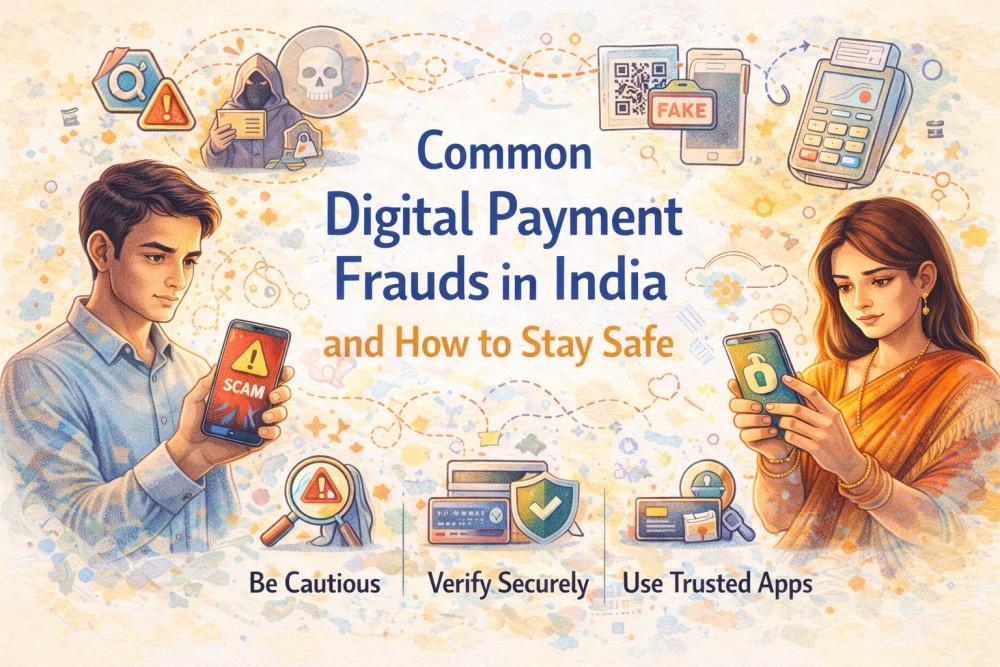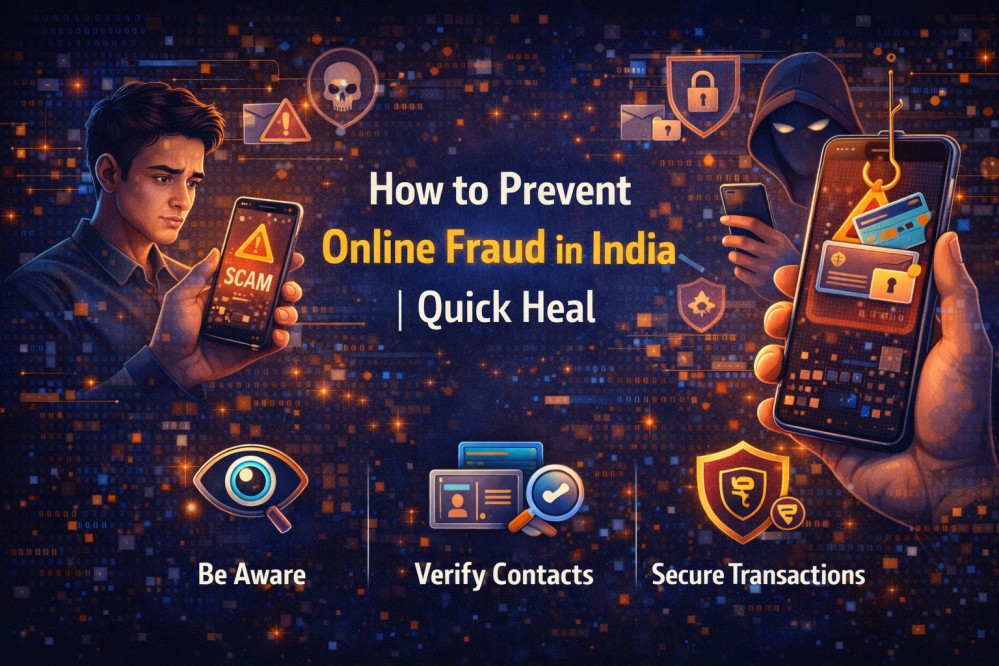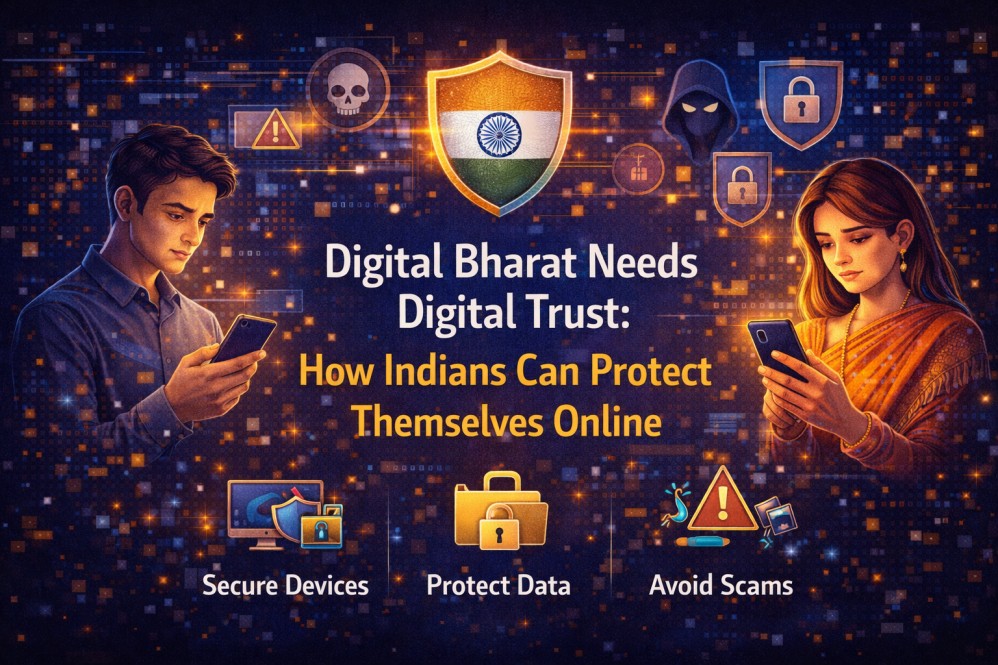
Sep

Matrimonial Scams: How to Spot Fake Profiles and Stay Safe Online
-
Quick Heal / 5 months
- September 29, 2025
- 0
Matrimonial sites are helping people significantly in finding their right match. However, it does come with its own set of challenges. Unfortunate future bride/groom also encounter bad experiences of falling prey and getting scammed by fake profiles.
What are the “Matrimonial scams”?
Matrimonial frauds typically involve fraudsters creating fake profiles on online matrimonial sites with the intention of deceiving innocent people. While some fraudsters may do this with the intent of conducting financial fraud or identity theft, others may do this to perpetrate more serious crimes. The following are common methods employed by fraudsters for matrimonial site fraud:
HOW IT WORKS:
- Mimic:
Fraudsters often create fake profiles which mimic someone else. They use attractive photos and attractive personal details to deceive more people to select their profiles. They may even pretend to be non-resident Indians (NRIs) or individuals with prestigious professions to gain the trust.
- Identity theft:
Some fraudsters steal personal information from genuine matrimonial profiles and use it to create fake identities. For instance, they may pick information from a profile on one site and create a fake profile of the same person on the other. This can lead to severe consequences for the victim, including blackmail and financial fraud.
- Emotional strategy:
Fraudsters engage in conversations over a period of time. They try to build emotional connections with their targets. Once they believe that the bond is established and you are getting emotionally involved with them, they start misusing your trust. They fabricate stories of financial hardships, medical emergencies or other crises to solicit money from you.
- Fake matrimonial profiles for criminal activities:
Criminals create fake profiles to target vulnerable individuals for more serious offences, such as human trafficking, extortion or escaping taxes like customs duty. Falling victim to such cases comes with dire consequences.
Consequences of Falling for Matrimonial Scams
- Financial impacts :
Victims can lose substantial sums of money due to the fraud, including savings, investments, and even money borrowed from family and friends.
- Emotional and psychological impacts :
Matrimonial fraud victims often experience intense emotional trauma, including feelings of shame, betrayal, sadness, loneliness, and even suicidal thoughts.
- Social impacts :
Victims may withdraw from social circles and experience loneliness due to the shame and embarrassment associated with being defrauded.
- Blackmail and extortion :
Scammers can use stolen information or photos to blackmail victim and demand money
- Shattered trust :
The experience can lead to a profound loss of trust in others and in the concept of relationships itself.
- Human trafficking and other crimes:
In some extreme cases, fake profiles are used to target vulnerable individuals for human trafficking or to facilitate other criminal activities
- Legal issues:
Victims may face legal consequences, such as being charged with crimes if they were unknowingly involved in immigration fraud.
Precautions:
How to identify fake profiles on matrimonial sites
1] You need to learn to identify fake profiles on matrimonial sites. You can use trusted matrimonial sites which offers the profiles with trusted personal identity.
2] Be cautious of profiles that seem too good and everything looks perfect. Some pointers include highly attractive photos, impressive achievements, moderate needs and expectations, high salaries, etc. You should verify the information provided by cross-referencing it with other sources like social media and mutual connections.
3] Fraudsters often make mistakes or provide conflicting details in the stories they tell you as compared to the information being displayed in their profile. When you begin talking with someone online, try to know more about them.
4] If you have any suspicions about someone’s identity, don’t hesitate to request official documentation, such as identification or proof of employment. Genuine individuals should understand the importance of transparency in building trust.
5] You should be wary of individuals who quickly share personal information or request sensitive details from you. Legitimate matches will take time to establish trust before sharing personal details and information.
6] You should never send money to someone you’ve met online. Fraudsters fabricate sad stories to take advantage of emotional connection and sympathy. What follows is a financial request with a promise to return the funds shortly.
7] Fraudsters often avoid in-person meetings and may provide excuses for not being able to meet, especially when they are using fake profiles or photographs. This is a potential red flag. You should insist on meeting in a public place before committing to a serious relationship. If the other person consistently refuses, then you should part ways quickly.






